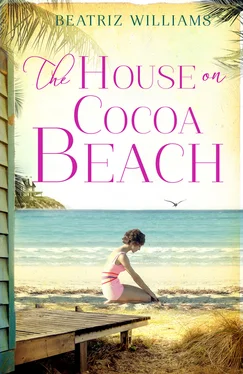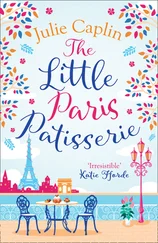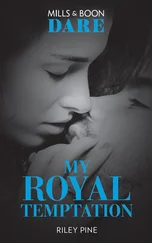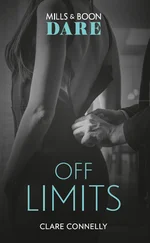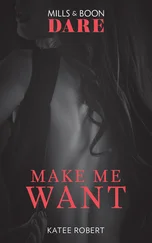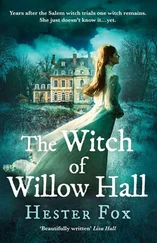A week passed before I found the composure to answer that letter, and when I did, my reply was just as slim and factual as the original, though I wrote it in pen on Pickwick Arms notepaper. I simply confirmed my identity as Simon’s widow, indicated that I would not be at liberty to attend Mr. Burnside in person for some weeks, but that I would be happy to answer any inquiries by letter in the meantime.
At the time, however, I made no mention of Evelyn. For one thing, I doubted Mr. Burnside—or Samuel Fitzwilliam, for that matter—would have any idea of her existence.
I’M CARRYING EVELYN IN MY arms this minute, as we cross the street to the Phantom Hotel and Simon’s private apartment on the fifth floor, overlooking the docks. I haven’t seen it yet. We spent a few brief moments in the hotel lobby this morning, Evelyn and I, depositing our luggage and waiting for Mr. Burnside to appear. I’m afraid I didn’t notice any details, other than a clean-lined, simple décor and the impression of light and mirrors.
Samuel offers to carry Evelyn, but I decline politely, even though my arms ache under her weight. Instead, he puts his hand on my elbow and makes sure there’s no traffic as we start across the pitted street. It’s the first time he’s touched me since we shook hands in the office, and his fingers are unexpectedly light against the sharp point of my humerus. As we reach the safety of the paved sidewalk, the hand drops away.
This time the hotel staff recognizes me, and the manager hurries over the instant I pass through the doorway and hoist Evelyn—already half-asleep—further up my hip. “Mrs. Fitzwilliam!” he cries in dismay. He turns and snaps his fingers to the lobby boy, who hurries to press the call button on the elevator at the other end of the room. By the time we reach the apartment and I’ve tucked Evelyn into her bed, a tray’s arrived, bearing sandwiches and a pitcher of lemonade. Samuel, who stands by the window looking at the river, offers to pour me a glass.
The humble question brings me up short in the middle of an enormous silk rug.
“Yes, thank you.”
He strikes out across the floor while I settle myself on the edge of a sleek leather armchair. The drawing room yawns around us, vast and spare, containing only a few necessary pieces of clean-edged furniture and no sentiment whatsoever. Even the curtains are pale and plain, a uniform gray-green that merges immaculately with the paint on the high, long walls. I can just glimpse the river over the edge of the nearest windowsill, and the dark mass of the mangrove on the opposite shore—the barrier that separates us from the Atlantic. A convenient, protected harbor. No wonder Cocoa’s a boomtown.
Samuel hands me a damp glass of lemonade. Our fingertips brush, and he doesn’t move away.
“I didn’t realize Simon’s taste was so modern,” I say.
“I didn’t either, when I first arrived. I suppose neither of us had the opportunity to know him particularly well.”
“I knew him well enough.”
“In hospitals and hotels. But you never set up a home together, did you?”
The question is rhetorical. Samuel knows the solution to this hypothesis as well as I do. Wasn’t he the very man who drove me away from Cornwall, in an ancient Daimler whose cracked leather seats released a particular smell that still hangs in my nostrils? Still: “That’s true,” I say, and I settle in my chair, back still rigid, away from his looming figure.
Samuel tilts his head and returns to his station by the window. “I am sorry about all this. It must have been the devil of a shock.”
“Yes, it was. I still can’t imagine him dead.”
“Neither can I. Of all of us, he was the one most alive.”
“But you saw him dead. You identified the body.”
“Only by the ring.” Samuel taps his finger on the window frame, and the action reminds me so much of Simon, I turn away to drink my lemonade. “The body itself was burned beyond recognition. Poor chap.”
“ Poor chap? You can still say that, after everything?”
“Yes, I can. He was my brother, after all.”
I think of Sophie, and the invisible thread that connects my heart to hers, even when an ocean opens between us. How my sister could commit no possible evil—even if she were capable of evil, and Sophie is as pure as a child—that would snap that thread.
“I suppose so.”
“And we had a row, you know, not too long before he died. The last time we met, a god-awful almighty row. I think you should know that, before you hear it from someone else. It’s been a weight on my mind ever since. And he stormed back to Maitland, to the plantation, and that was the last I saw of him. Until I went to identify his body. What there was of it.”
My lips are numb from the ice. I set the glass on the round marble table next to the armchair, and as the two connect in a soft clink, something else occurs to me. “What ring?”
“Ring?”
“How you identified him. He had a ring, you said.”
Samuel turns. “Yes. It was your wedding ring. The one you gave back. He kept it on him. I’m not sure how, in a pocket or something. The fire got to it. But I could still make out the inscription. Your initials, and his.” He reaches into his pocket. “Here it is, if you want a look.”
I stare at his grim expression. At his outstretched hand. The sunlight catches a glint from somewhere within that dense landscape of palm and mangrove, and I think, It can’t be my ring; it’s too small . But of course it is. Dull and bent, no longer a ring but a piece of burnt scrap. It might be anyone’s old ring, but Samuel says it’s mine, Samuel says it’s the ring that Simon placed on my finger three years ago amid a litany of Christian vows, and unlike my late husband, and for all his faults, Samuel is a straightforward man who speaks only truth.
I realize I have stopped moving, stopped breathing, and before this paralysis becomes permanent I spring from the armchair and make for the opposite end of the room, where a broad, high window looks not eastward toward Europe but north, in the direction of New York City. I place my hands on the windowsill and breathe in large, shallow gasps, staring upriver at the ships coursing the tranquil blue water.
Behind me, Samuel swears and apologizes. I hear footsteps, and the click of wood, and the clink of glass, and a moment later, just as I’ve recovered the ordinary rhythms of respiration, my lemonade glass reappears at my elbow. I snatch it away and Samuel says, Careful!
But it’s too late. I’ve already gulped down the first few ounces, and my throat bursts into flame. The cavities of my head fill with smoke.
“My God! What did you put in it?”
“Gin.”
Another spasm. I set down the glass on the ledge. “Isn’t that against the law?”
“Not to drink. Only to buy.”
“You had to have bought it somewhere.”
Samuel shrugged. “The liquor cabinet was already full when I arrived. What’s a fellow to do but drink?”
I lift the glass again, and this time I sip more carefully, and the gin has its proper effect. Tamed by lemonade, in fact, it’s what you might call tranquilizing. My pulse settles, my nerves simmer down. The chasm between my ribs fills with something or other. The warmth on my shoulder, I realize, belongs to Samuel’s hand. I shrug it off and turn to face him, and that’s my second mistake, greater even than the reckless gulping of Samuel’s particular recipe for refreshment.
Maybe it’s his grim, unhappy expression. Maybe it’s the color of his eyes. His smell, or the gin, or the memory of my wedding night, or God knows. Maybe it’s the effect of a sleepless Pullman sleeper, clackety-clack all the way from New York. My eyes, which have remained dry for the past three years, dry and dignified throughout every last thing, start to liquefy at last. I bend my face to the side, but not soon enough.
Читать дальше
